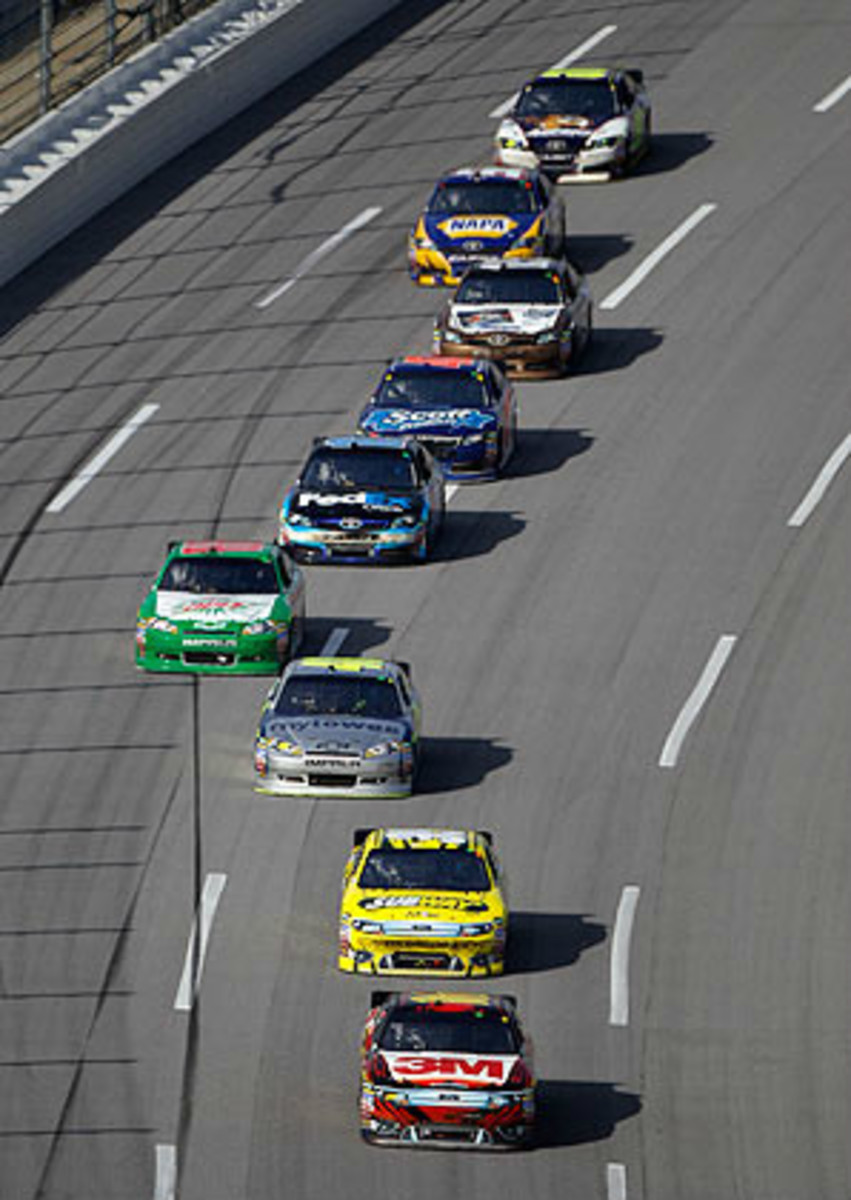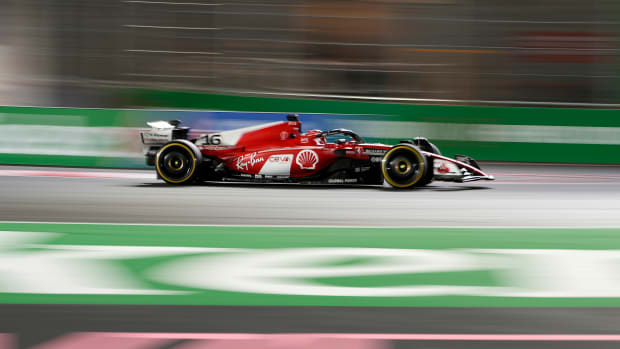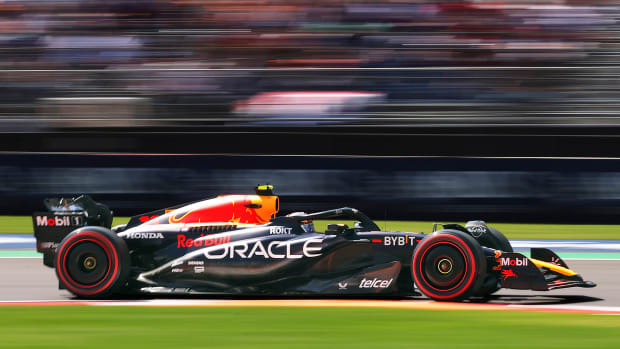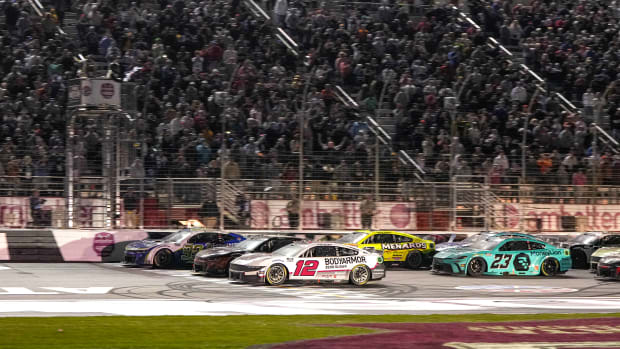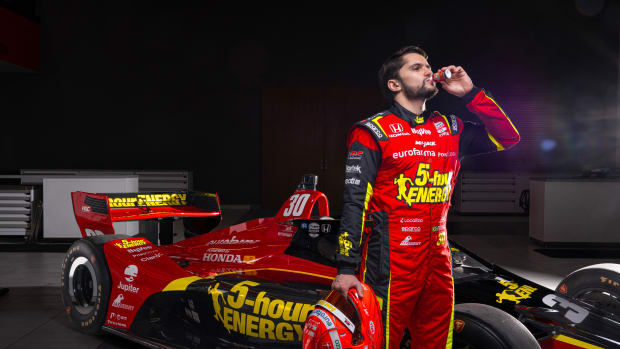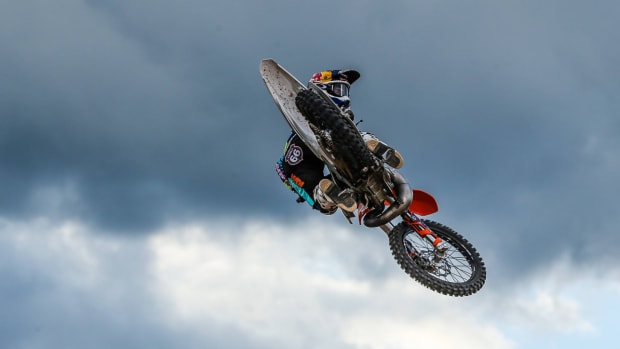Remedy for a ho-hum season could come Sunday at Talladega
The perfect remedy could be coming Sunday at Talladega.
Richmond spiced up the on-track product with some questionable late calls, including that dreaded manufactured wrinkle known as debris cautions. But it's the unpredictability of 'Dega -- and let's be honest, the potential for spectacular wrecks -- that could appease those fans who have been complaining about a run of ho-hum races.
"I'm just wanting to know, when the dice get rolled, if they're going to play in our favor or not," Ryan Newman said. "In all honesty, Talladega is a crapshoot."
We can debate the racing purist vs. racing sadist argument all day, but there's no denying that the cleanliness of the season this far is unlike anything we've seen in recent years. Over the first nine races of the season there have been 48 cautions, 28 of the non-debris/fluid/competition variety. That includes zero at both rain-shortened Fontana and Fort Worth.
"That is kind of fun racing like that," Edwards said of the Texas race. "I don't know what it is like to watch, but as a race car driver, that is neat to run the whole race."
By comparison, the last five years there have been an average of 56.4 natural cautions at this point, which averages out to a little over six a race, or nearly double what we've seen in '12. In fact, over the past five seasons, just two races in the opening months have produced a mere one caution caused by a wreck/spin-out, etc. (Fontana in '09 and Atlanta in '07), and this year we've already seen four such single-caution races.
In a year of parity, the culprit could be a lack of aggressive driving as everyone works to accrue points to boost their chances of making the Chase. Whatever the cause, we've seen a decline in close racing and the resulting natural cautions. The decline has been so evident that track owner Bruton Smith announced he'll tear up Bristol Motor Speedway -- where this year's race produced a paltry five total cautions after producing double digits in yellows from 2000 to '11 -- due to complaints from fans.
A return to restrictor-plate racing is a strong bet to break the series out of that rut.
A year ago, Talladega matched the series' record for the most lead changes with 88 and margin of victory at 0.002 seconds as Jimmie Johnson edged out Clint Bowyer. In fact, since the advent of electronic scoring in 1993, every race at Talladega that has finished under green has had a margin of victory of less than a half second.
But it's the propensity of the series' largest track to deliver the Big One that adds to the track's aura.
"There's more potential to get involved in something not of your making there, and that's frustrating to me," Newman said. "But that's not just me. Everyone hopes they can avoid the big crash there. ... When you're the recipient of somebody else's lack of judgment, then it's not easy to talk about it. And that's pretty much it. It's just that there is way more potential for that there than there is at most other racetracks."
Said Jamie McMurray, who won the '09 fall race and has four other top-five career finishes at 'Dega: "This is one of the four races a year that you just hope things don't get out of hand and maybe you can bring the car home in one piece with a good finish."
And with the pack expected to be back, things could get really dicey. NASCAR made changes after last October's stop at Talladega in an effort to return to the traditional style of restrictor-plate racing. Alterations were made to both the restrictor plates and front grille openings in hopes of cutting down on the two-car breakaways that had many fans and drivers up in arms.
It worked at Daytona, and it should have the same impact at Talladega. With race-day highs expected to climb near 90 degrees, cars could be in danger of overheating more quickly, cutting down on the amount of time they can stay locked up in the tandems.
"You're going to see Daytona all over again," Joey Logano said. "You're going to see a little bit of both -- you'll see the pack racing, then you'll see guys trying to go for it. Two car tandems at the end, blowing water out of them, blowing motors up. It will be fun."
Talladega has the ability to make the fans happy, but will it? Tightly-bunched racing on the 2.66-mile superspeedway should appease those fans who have been clamoring for an edge-of-your-seat spectacle. But let's not forget just how volatile this track can be. It has been the stage for 10 drivers' first career wins, with the latest coming from Brad Keselowski in '09.
We have no idea what's coming. But we can expect the number of yellow flags in 2012 to get a boost on the Alabama asphalt.
"I think it will be a safe bet to say that there will be a lot of cautions toward the end of the race," said Jeff Burton. "It will get four-wide and really aggressive in the big packs. That is all a given."
Talladega Pick
Dale Earnhardt Jr. Expect a lot of people to be pegging this as the week that Junior finally ends his 138-race drought, which is in danger of reaching its four-year anniversary next month. His résumé on the superspeedway is impressive: five wins in 24 starts, which is second only to Jeff Gordon among active drivers.
But Earnhardt has seemingly been building toward a breakthrough, sitting five points behind leader Greg Biffle for second in the Sprint Cup Series points standings after finishing third twice and second once in the last five weeks. Hendrick Motorsports has been sitting on 199 Cup wins since Jimmie Johnson's victory Oct. 9 in Kansas, but look for Junior to bring that landmark win for team owner Rick Hendrick this Sunday.
